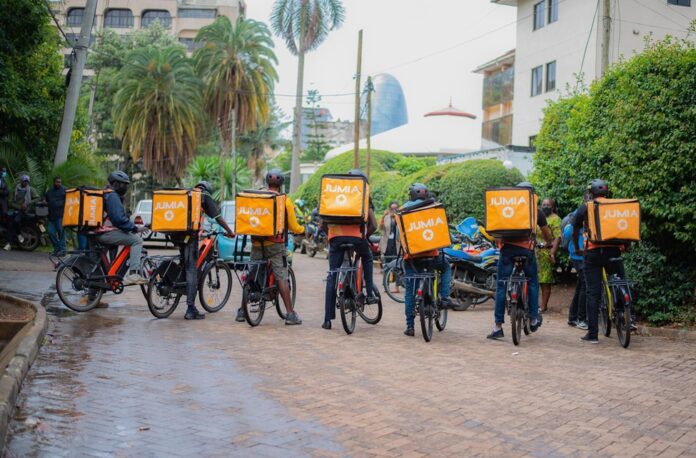Rising sea levels, acidic oceans, burning forests, dying coral reefs, and extreme weather are among the devastating effects of climate change that increasingly are evident in all corners of the globe.
According to recent projections from the World Health Organisation, without urgent interventions, between 2030 and 2050, climate change will cause approximately 250,000 additional deaths per year from malnutrition, malaria, diarrhea, and heat stress. The direct damage costs to health are estimated to be between $2–4 billion yearly by 2030. In Africa, climate change is expected to push 39.7 million people into poverty.
Due to these statistics and the dedication of conscientious individuals, global organisations are increasingly implementing strategies designed to save the ecosystem. About 93 percent of the world’s largest companies report on sustainability. Jumia, Africa’s leading e-commerce platform, is among those that have joined over 250 leading companies to announce its Environmental Social Governance (ESG) plan.
To promote sustainability, Jumia’s green growth initiative is addressing existing and emerging economic challenges without comprising livelihoods and leaving the continent vulnerable to climate change and other environmental risks. In line with the green growth model, Jumia’s Group Chief Sustainability Officer Juliet C. Anammah revealed that the organisation’s sustainability mission “will improve lives, create opportunities, and reinforce positive change for people, communities, and the planet.”

Strategies Matched with Action
With Jumia’s ESG strategy announcement, the e-commerce giant has actively engaged in relevant environmentally friendly activities across its African operations, aligning with the United Nations Sustainability Goal for Responsible Consumption and Production.
To reduce waste and environmental pollution, Jumia prioritises electronic records for data storage to eliminate the need for paper usage and disposal. In addition, the company re-uses manufacturers’ packaging and recycles packaging from customers’ returns. The refurbishing strategy extends to the sale of pre-owned and used phones. In 2021, the online marketplace sold 8,472 refurbished phones to promote responsible product consumption.
The company also allows qualifying customers to keep some items they wish to return and still gives them a refund. Through the conceivable initiative in 2020 and 2021, the company effectively avoided the shipment of 16,800 and 28,000 items, which could have led to 5.2 tons and 6.6 tons of carbon dioxide (CO2) emissions in Africa.

Friendly Environmental Practices
Scientists have noted that greenhouse gas emissions trap the sun’s heat and contribute to climate change. Transportation is responsible for the largest share of greenhouse gas emissions, primarily from burning fossil fuels in cars, trucks, ships, trains, and planes during transit, as the United States Environmental Protection Agency reported.
E-commerce companies will need to take action to keep gas emissions from their logistics operations in check. In line with this, Jumia relocated hubs closer to customer clusters, resulting in a 5.4% reduction in the distance travelled from these hubs. The platform further implemented best practices for clean fuel storage, carburetor cleaning, vehicle servicing, and usage. In addition, the e-commerce company organised hands-on training for its logistics team and third-party logistics partners on processes to ensure vehicles are adequately maintained and serviced.

Measures were put in place to reduce fuel consumption and mitigate or eliminate the use of corrosive energy. For example, the organisation set up 2,916 pick-up stations that allow consumers to receive their orders at stations close to them. With this model, customers simply walk a short distance to retrieve their package or take a less carbon-intensive means of transportation. As a result, in 2021, 21% of packages were picked up by Jumia customers from their respective pick-up locations.
Furthermore, we have seen the company move to eco-friendly transportation to reduce its carbon footprint. Recently, Jumia entered into a partnership with Cargo Bikes Africa, Cycle Drop Company Limited, and Solar Taxi in Ghana for eco-friendly deliveries using e-Bikes. A similar move was made in Kenya with BILITI Electric seeing Jumia add e-Vans (TukTuks) to its delivery fleet to minimize the environmental impact of its operations. Drones delivery in rural areas can also support this objective, Jumia started recently a partnership in Ghana with Zipline. This innovation can definitely help to fight against climate change.
Extensive energy consumption has been linked to climate change, contributing to about two-thirds of global greenhouse gas emissions. Although energy choice is limited in Africa and supply from the grid is not always reliable, e-commerce companies like Jumia apply innovative solutions to reduce energy use where possible. For example, in some of the company’s warehouses, sunlight-transparent panels and energy-efficient exhaust fans are used, reducing the need to power light fixtures and maximising climate control.
In conclusion, organisations in Africa must continuously employ creative and intentional measures to contribute to a healthy environment.






